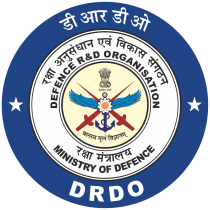Aerospace Material Markets, 2018-2027: Structural (Composite Materials, Plastics & Metals) and Non-structural (Foams, Coatings & Adhesives) - ResearchAndMarkets.com
The "Aerospace Material - Global Market Outlook (2018-2027)" report has been added to ResearchAndMarkets.com's offering.
The Global Aerospace Material market accounted for $18.89 billion in 2018 and is expected to reach $38.08 billion by 2027 growing at a CAGR of 8.1% during the forecast period.
Some of the key factors influencing market growth include an increase in demand for lightweight and fuel-efficient aircraft, the rise in spending power and air passenger traffic and the introduction of new domestic and international routes. However, a limited range of material options owing to complex requirements is restricting market growth.
Amongst type, composite materials are the most extensively used type segment of the aerospace materials after aluminium. The wide use of composites in aerospace materials offers several advantages over traditional materials, such as low weight, increased manufacturing productivity (processing speeds), lower VOC emissions, and better corrosion resistance, among others. Increasing applications in new generation aircraft and rising environmental concerns offer significant growth opportunities for composites in the aircraft manufacturing industry.
By Geography, Asia-Pacific is estimated to grow at a significant rate during the forecast period. Countries in this region, such as China, Japan, and India are witnessing a significant increase in the use of aerospace materials. This increase can be attributed to the growing aerospace industry, which is driving the demand for aerospace materials in the region. Japan and India are attracting investors to set up production facilities because of the ease of availability of raw materials and labour at a lower price. The increasing air traffic and a number of low-cost carriers in the region are expected to lead to an increase in the demand for new aircraft in the region.
Some of the key players in the global aerospace material market are 3M, Solvay Sa, BASF SE, SABIC, PPG Industries Inc., Toray Industries, Inc., Akzo Nobel N.V., Teijin Limited, Alcoa Corporation, DuPont, Rchling, Arkema Group, Mitsubishi Chemical Holdings Corporation, Henkel AG & Co. KGaA, Huntsman International LLC, Hexcel Corporation, Koninklijke Ten Cate NV, Sumitomo Bakelite Co. Ltd., and Tata Advanced Materials Limited.
What the report offers:
- Market share assessments for the regional and country-level segments
- Strategic recommendations for the new entrants
- Covers Market data for the years 2017, 2018, 2019, 2023 and 2027
- Market Trends (Drivers, Constraints, Opportunities, Threats, Challenges, Investment Opportunities, and recommendations)
- Strategic analysis: Drivers and Constraints, Product/Technology Analysis, Porter's five forces analysis, SWOT analysis, etc.
- Strategic recommendations in key business segments based on the market estimations
- Competitive landscaping mapping the key common trends
- Company profiling with detailed strategies, financials, and recent developments
- Supply chain trends mapping the latest technological advancements
Key Topics Covered
1 Executive Summary
2 Preface
3 Market Trend Analysis
3.1 Introduction
3.2 Drivers
3.3 Restraints
3.4 Opportunities
3.5 Threats
3.6 Application Analysis
3.7 End User Analysis
3.8 Emerging Markets
3.9 Futuristic Market Scenario
4 Porters Five Force Analysis
4.1 Bargaining power of suppliers
4.2 Bargaining power of buyers
4.3 Threat of substitutes
4.4 Threat of new entrants
4.5 Competitive rivalry
5 Global Aerospace Material Market, By Aircraft Type
5.1 Introduction
5.2 Small Wide Body
5.3 Single Aisle
5.4 Medium Wide Body
5.5 Regional Jets
5.6 Large Wide Body
6 Global Aerospace Material Market, By Type
6.1 Introduction
6.2 Structural
6.2.1 Composite Materials
6.2.1.1 Resin
6.2.1.1.1 Phenolic
6.2.1.1.2 Thermoplastics
6.2.1.1.3 Epoxy
6.2.1.1.4 Polyimides
6.2.1.1.5 Polyester
6.2.1.2 Fiber
6.2.1.2.1 Ceramic Matrix Composites (CMC)
6.2.1.2.2 Metal Matrix Composites (MMC)
6.2.1.2.3 Carbon Fibre Reinforced Plastics
6.2.1.2.4 Aramid Fiber-Based
6.2.1.2.5 Glass Fibre Reinforced Plastics
6.2.2 Plastics
6.2.2.1 Polymethyl Methacrylate (PMMA)
6.2.2.2 Polyphenylene Sulfide (PPS)
6.2.2.3 Acrylonitrile Butadiene Styrene (ABS)
6.2.2.4 Polyether Ether Ketone (PEEK)
6.2.2.5 Polycarbonates (PC)
6.2.3 Metals
6.2.3.1 Steel Alloys
6.2.3.2 Titanium Alloys
6.2.3.3 Aluminum Alloys
6.2.3.4 Super Alloys
6.3 Non-structural
6.3.1 Foams
6.3.1.1 Specialty Foams
6.3.1.2 Polyurethane
6.3.1.3 Polyethylene
6.3.2 Coatings
6.3.3 Adhesives
6.3.3.1 Polyurethane
6.3.3.2 Silicone
7 Global Aerospace Material Market, By Application
7.1 Introduction
7.2 Exterior
7.2.1 Air Frame
7.2.2 Windows & Windshield
7.2.3 Propulsion System
7.2.4 Tail & Fin
7.3 Interior
7.3.1 Interior Panels
7.3.2 Passenger Seating
7.3.3 Galley
8 Global Aerospace Material Market, By End User
8.1 Introduction
8.2 Business, General and Personal Aviation
8.3 Military & Defence Aircraft
8.4 Space Vehicles
8.5 Rotorcraft
8.6 Commercial Aircraft
8.7 Helicopters
8.7.1 Civil Helicopter
8.7.2 Military Helicopter
9 Global Aerospace Material Market, By Geography
9.1 Introduction
9.2 North America
9.2.1 US
9.2.2 Canada
9.2.3 Mexico
9.3 Europe
9.3.1 Germany
9.3.2 UK
9.3.3 Italy
9.3.4 France
9.3.5 Spain
9.3.6 Rest of Europe
9.4 Asia Pacific
9.4.1 Japan
9.4.2 China
9.4.3 India
9.4.4 Australia
9.4.5 New Zealand
9.4.6 South Korea
9.4.7 Rest of Asia Pacific
9.5 South America
9.5.1 Argentina
9.5.2 Brazil
9.5.3 Chile
9.5.4 Rest of South America
9.6 Middle East & Africa
9.6.1 Saudi Arabia
9.6.2 UAE
9.6.3 Qatar
9.6.4 South Africa
9.6.5 Rest of Middle East & Africa
10 Key Developments
10.1 Agreements, Partnerships, Collaborations and Joint Ventures
10.2 Acquisitions & Mergers
10.3 New Product Launch
10.4 Expansions
10.5 Other Key Strategies
11 Company Profiling
11.1 3M
11.2 Solvay S.A.
11.3 BASF SE
11.4 SABIC
11.5 PPG Industries Inc.
11.6 Toray Industries, Inc.
11.7 AkzoNobel N.V.
11.8 Teijin Limited
11.9 Alcoa Corporation
11.10 DuPont
11.11 Rochling
11.12 Arkema Group
11.13 Mitsubishi Chemical Holdings Corporation
11.14 Henkel AG & Co. KGaA
11.15 Huntsman International LLC
11.16 Hexcel Corporation
11.17 Koninklijke Ten Cate N.V.
11.18 Sumitomo Bakelite Co. Ltd.
11.19 Tata Advanced Materials Limited
For more information about this report visit https://www.researchandmarkets.com/r/xqgf12
View source version on businesswire.com: https://www.businesswire.com/news/home/20200331005491/en/






